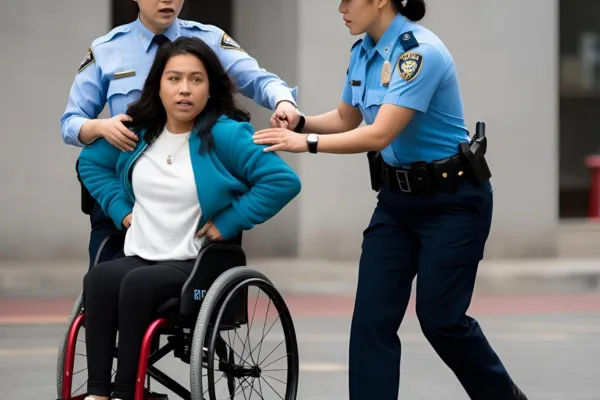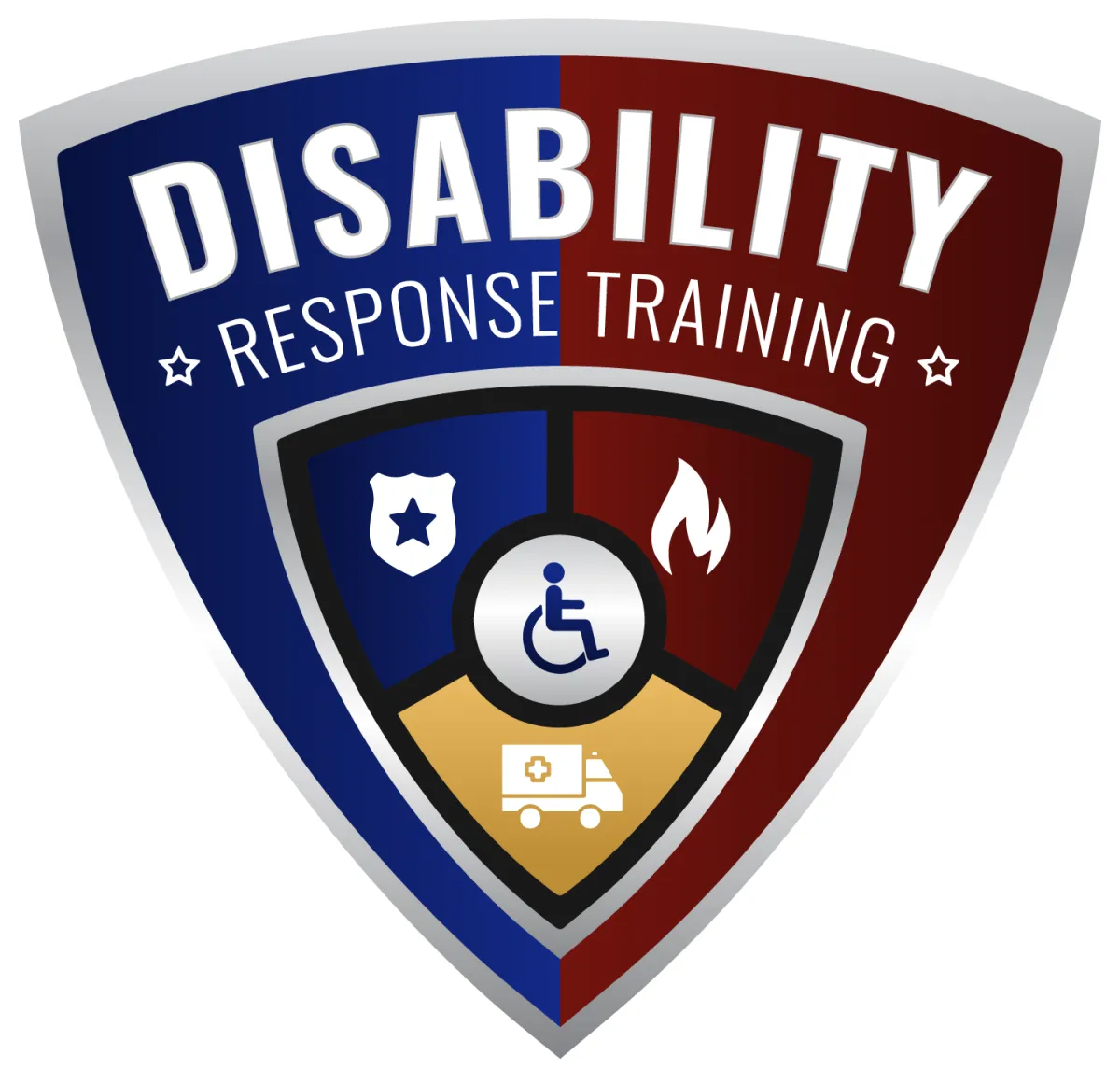See Our Latest Blogs

The Importance of Police Disability Training: Enhancing Safety and Understanding
Why Police Disability Training is Essential
Law enforcement officers face complex situations daily, requiring them to respond quickly and effectively to individuals from all walks of life. Among those they encounter are individuals with disabilities—both visible and invisible—who may communicate or behave differently due to their conditions. Without proper training, misunderstandings can escalate, leading to unnecessary force, legal issues, and a loss of public trust.
Police disability training provides officers with the knowledge and skills necessary to handle interactions with individuals with disabilities safely and respectfully. Training ensures that law enforcement personnel can:
Recognize different types of disabilities (e.g., physical, developmental, intellectual, or mental health-related).
Communicate effectively with individuals who may have difficulty speaking, understanding, or responding to verbal commands.
De-escalate potentially tense situations using appropriate techniques.
Ensure compliance with laws such as the Americans with Disabilities Act (ADA) and other regulations that protect individuals with disabilities.
By prioritizing disability response training, law enforcement agencies improve community relations while reducing the risk of unnecessary confrontations.
Understanding Different Types of Disabilities in Law Enforcement Encounters
A crucial part of police disability training is recognizing and understanding the different types of disabilities that officers may encounter. These include:
1. Physical Disabilities
Individuals with mobility impairments, such as those who use wheelchairs, prosthetics, or crutches, may have limited movement. Officers should be trained on:
The proper way to assist someone with mobility limitations.
Recognizing that some individuals may need extra time to comply with physical commands.
Avoiding assumptions about a person’s abilities based on their physical appearance.
2. Intellectual and Developmental Disabilities (IDD)
Conditions such as autism spectrum disorder (ASD), Down syndrome, or other developmental disorders can affect cognitive functions, communication, and behavior. Officers should learn to:
Recognize nonverbal communication cues.
Use clear, simple instructions.
Understand that some individuals may have difficulty following commands or processing information quickly.
3. Mental Health Conditions
Anxiety, schizophrenia, PTSD, and other mental health conditions can impact an individual’s response to law enforcement. Training can help officers:
Identify signs of a mental health crisis.
Use de-escalation strategies instead of force.
Work with mental health professionals to provide appropriate support.
4. Hearing and Speech Impairments
Individuals who are deaf or hard of hearing may not respond to verbal commands. Officers should be aware of alternative communication methods, such as:
Recognizing common signs of hearing impairments.
Using gestures, writing, or technology to facilitate communication.
Understanding that sudden movements may startle someone who cannot hear commands.
5. Vision Impairments
Those with partial or complete vision loss may struggle to navigate their surroundings or respond to visual cues. Officers should:
Identify individuals with vision impairments through canes, service dogs, or other indicators.
Clearly explain actions before taking them to avoid confusion or fear.
Avoid separating individuals from their assistive devices.
The Legal and Ethical Responsibility of Law Enforcement
Police departments have a legal and ethical responsibility to ensure officers are properly trained in handling encounters with individuals with disabilities. The Americans with Disabilities Act (ADA) mandates equal treatment and reasonable accommodations for people with disabilities in all public services, including law enforcement.
Failing to comply with ADA regulations can lead to:
Lawsuits and legal action against officers or departments.
Loss of public trust and credibility.
Increased incidents of unnecessary force due to lack of proper communication and de-escalation strategies.
By integrating police disability training into department policies, agencies can ensure compliance with the law while fostering a safer and more inclusive community.
How Disability Response Training Improves Law Enforcement Practices
Comprehensive training programs help police officers develop practical skills to handle diverse situations effectively. Some key benefits of disability response training include:
Better Communication Skills – Officers learn how to interact appropriately with individuals who may struggle to follow verbal commands.
Reduced Use of Force – By recognizing signs of disability-related behaviors, officers can use alternative strategies before resorting to physical force.
Enhanced Public Trust – When communities see law enforcement treating individuals with disabilities fairly and respectfully, confidence in policing improves.
Increased Officer Confidence – Proper training reduces uncertainty in high-pressure situations, leading to better decision-making.
Implementing Effective Police Disability Training Programs
To be truly effective, police disability training should be:
Mandatory and ongoing – A single training session is not enough. Regular updates and scenario-based exercises help reinforce best practices.
Developed with input from disability advocates – Collaborating with individuals who have firsthand experience ensures training programs are realistic and effective.
Scenario-based and interactive – Real-life simulations help officers practice responses in controlled environments before facing them in the field.
Get Expert Disability Response Training for Law Enforcement
For police departments looking to enhance their disability training efforts, professional programs are available to ensure officers receive comprehensive and effective education.
At Disability Response Training, we specialize in providing law enforcement agencies with the tools and knowledge necessary to handle disability-related interactions with professionalism and care. Our training programs cover:
✅ Understanding different types of disabilities
✅ Effective communication techniques
✅ De-escalation strategies
✅ Legal compliance and ADA guidelines
To learn more about our police disability training programs and how they can benefit your department, visit our training page today.
Final Thoughts
As law enforcement continues to evolve, police disability training must remain a priority. Proper training not only protects individuals with disabilities but also ensures officers can perform their duties effectively while fostering trust within their communities. By investing in disability response training, police departments take a proactive step toward safer and more inclusive policing.
Ready to improve disability response training in your department? Visit our training page today to get started.
Empowering Law Enforcement to Successfully Interact with Physically Disabled Suspects
Essential training to prepare your officers for any situation involving a physically disabled person—boosting individual safety and reinforcing public trust.
Contact:
© 2025 Disability Response Training
All Rights Reserved - Privacy Policy

